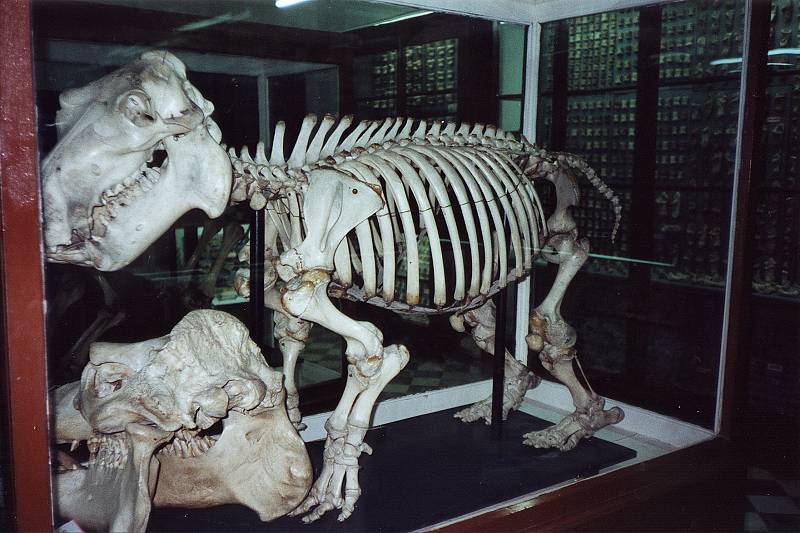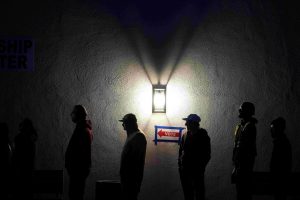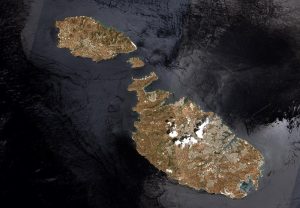450,000 years ago we had elephants the size of a large dog (90 cm high) in Malta and gigantic swans double their size. In small islands small mammals increase in size (insular gigantism) and large mammals become smaller (insular dwarfism). Does this also apply to small island politics and politicians or has political dwarfism become a global phenomenon? There is no Caesar any more bestriding “the narrow world/Like a Colossus; and we petty men/Walk under his huge legs, and peep about/To find ourselves dishonourable graves.” (Cassius in Shakespeare’s ‘Julius Caesar’).
Edelman’s 2022 global ‘Trust Barometer’ shows that a majority of people globally believe journalists (67%), government leaders (66%) and business executives (63%) are “purposely trying to mislead people by saying things they know are false or gross exaggerations.” Trust in government is collapsing globally. Machiavelli argues that politicians deceive because people want to be deceived. In democracies, voters get the politicians they deserve, choosing them either by voting for them or by staying away from voting for someone else.
In ‘Difficulty of governing’ (1937), German poet Bertolt Brecht mocks the strong megalomaniac leaders of the time. Many people believed them uncritically and supported them blindly:
“Ministers are always telling the people
How difficult it is to govern. Without the ministers
Corn would grow into the ground, not upward.
Not a lump of coal would leave the mine if
The Chancellor weren’t so clever. Without the Minister of
Propaganda
No girl would ever agree to get pregnant. Without the
Minister of War
There’d never be a war. Indeed, whether the sun would rise
in the morning
Without the Fuhrer’s permission
Is very doubtful, and if it did, it would be
In the wrong place.”
The World Economic Forum (WEF) says: “Today … many people have lost faith in their leaders. Faced with mounting risks and our collective failure to address them, we have started looking for culprits… At the heart of our failure to foresee and manage global risks – not only climate change and deepening social divisions but also the re-emergence of infectious diseases, debt crises, and inadequate technology regulation – lies an unresolved problem of global governance. Our institutions and their leadership are no longer fit for purpose.”
The WEF calls for a new governance model that would differ fundamentally from its predecessors. “First, it would replace today’s short-term crisis management with long-term strategic thinking. A focus on current problems must be complemented with action to tackle climate change, reverse biodiversity loss and environmental damage caused by human activity, and address related social challenges such as involuntary migration.”
In Malta too we have no long-term strategic thinking. Our population has reached over 516,000. Many feel we have become too overcrowded: too many people, too many cars, too many buildings. What is our carrying capacity as a country? How many more people can we support within our natural resource limits, and without degrading further the natural, social and economic environment for present and future generations? Have we reached this limit already? How many more people, buildings, cars and the corresponding increase in schools, hospitals and general infrastructure can we cater for without collapsing? These are not easy questions to answer. We need economic growth to sustain our standards of living and revenue for public services, a strong welfare state and a liveable country.
We need our people in politics, business and civil society to engage in a robust debate about our future, understanding where we are, making an honest assessment of our shortcomings and drawing up a national inclusive and strategic action plan on the way forward. We have become a multicultural society, and we need to have a serious plan of action that helps us embrace diversity and learn to live together. Extensive parts of our country have become contested and disputed spaces where the Maltese feel displaced, and where foreigners feel unwelcome.
No one has all the answers
The geopolitical and geo-economic global landscape is changing. The digital technology is changing the world. Life will never be the same again for Malta as well. We need strategic leadership to adapt and adjust to these new realities if we do not want to be left behind.
WEF states that today’s governance must replace the tunnel vision and top-down approach that prevailed in the past with “the rule of the “one man”: the elected or unelected “strong leader” and the “boss.” … We live in a highly complex and interconnected world … the roles and responsibilities of each stakeholder in society must change. Business can no longer ignore its social and environmental impact, while government can no longer act as if it alone has all the answers … the current emphasis on a narrow conception of economics and short-term financial interests must cease. Instead, the primacy of society and nature must be at the core of any new governance system … Finance and business are vitally important. But they must serve society and nature, not the other way around.”
More than today’s leaders becoming smaller, today’s problems and challenges have become bigger, and no one has all the answers. More than ever, leadership is a team – and not an individual – sport. So, more than a leader “bestriding the world like a Colossus”, we need leaders who are honest, humble, empathetic, ready to continue learning, committed to inclusive politics to heal polarised societies, capable of mobilising the best talent, experience and know-how in their societies to address the complex challenges of the world in the 21st century. But we also need voters who want such politicians and are ready to turn away from short sighted and crony politics. Both politicians and voters are part of the problem and the solution. We still have not carried out a national examination of conscience on how we got the broken politics we have.
On whom and on what should the blame be laid? On any and everybody except ourselves?




